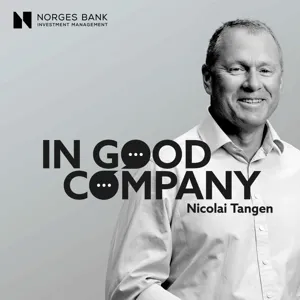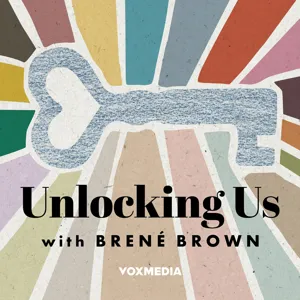Podcast Summary
Investment Opportunities in the Fast Food Industry: The fast food industry, particularly burgers, coffee, chicken sandwiches, and pizza, offers stable and high-margin businesses with global growth drivers, low capital intensity, and high operating margins. Success relies on returns to franchisees, making the best business one that provides the best returns for growth and expansion.
The fast food industry, specifically the sectors of burgers, coffee, chicken sandwiches, and now, potentially, even pizza, offer a stable and high-margin business model for investors. The industry benefits from global growth drivers such as the formalization of the restaurant sector in developing markets. These businesses also have low capital intensity and high operating margins, making them attractive investments. The success of the business ultimately comes down to the returns given to franchisees, as they are the ones running and investing in the restaurants. The best business, therefore, is the one that provides the best returns to the franchisees, allowing for growth and expansion of the brand. Despite current economic challenges and inflation, the consumer behavior in the fast food industry remains consistent, making it a promising industry for investment.
Positive trends in the restaurant industry driven by employment levels: Employment growth is fueling demand for convenience in the restaurant industry, with Burger King focusing on its iconic Whopper and unique selling points to stay competitive
The restaurant industry is experiencing positive trends, particularly in the biggest businesses like Tim's and Burger King. The impact of weight loss drugs on the industry is predicted to be negligible. The primary driver of the restaurant industry is employment levels, with rising employment leading to increased demand for convenience. Burger King stands out with its focus on the flagship product, the Whopper, and its unique selling points of flame grilling and "have it your way." The Whopper, which was first introduced in 1957, is larger than other burgers and benefits from the distinctive taste of flame grilling. The company is investing heavily in modernizing facilities to maintain a competitive edge.
Improving consistency and execution of Burger King's flagship product: Burger King focuses on enhancing the Whopper's consistency and execution in US restaurants, aiming to meet customer expectations, while also making ingredient lists cleaner and more transparent.
While the Whopper remains Burger King's flagship product, there is a focus on improving its consistency and execution in restaurants, particularly in the US. The food itself is considered the best in its category, but the brand needs to execute better to meet customer expectations. Additionally, there is a responsibility to be thoughtful about the ingredients and nutrition of the food, and efforts have been made to make the ingredient list cleaner and more transparent. The opportunities for growth lie more in execution and service levels in the restaurants rather than a food issue.
Plant-based options lagging in US sales compared to Europe: Europe leads in plant-based sales, but US lags behind, providing opportunity for growth for companies in the sector. Tim Hortons, a Canadian chain, continues to thrive with its coffee business, offering potential for expansion.
While plant-based options have seen significant growth in Europe, accounting for a high percentage of sales in countries like Germany and the UK, the adoption in the US has been much less, representing only a low single-digit percentage of sales. On the other hand, Tim Hortons, a Canadian institution, continues to thrive with its coffee business, which is highly loyal and addictive, generating high margins. Despite being deeply loved and penetrated in its home market, there is still room for growth through expanding business hours, focusing on cold beverages, and expanding globally, including into the US.
Tim Hortons' Canadian roots make it a key player in the global coffee market: Tim Hortons, as the largest cash flow generator for RBI, offers growth opportunities in the global coffee industry. Committed to sustainability, it targets markets like China and India for expansion, and prioritizes employee development for its 500,000+ workers.
Tim Hortons, being the largest cash flow generator for Restaurant Brands International (RBI), presents significant growth opportunities in the global coffee market. The company's strong connection to its Canadian origin adds authority and makes it a natural player in this industry. Exciting markets like China and India are of particular interest due to increasing coffee adoption. Tim Hortons is committed to sustainability, addressing issues such as deforestation and child labor through auditing and verification processes. The company's unified corporate culture, influenced by its leaders' behaviors, impacts its 500,000+ employees across the system, many of whom may have their first jobs in these restaurants. Employing such a large workforce, RBI recognizes the importance and responsibility of providing formative experiences for these young people.
Creating a Positive Work Environment for Young Employees: Hire for attitude and teach skills to build a strong team, prioritize community involvement and caring managers to set the tone, and the human touch remains essential in creating a positive customer experience.
Creating a positive work environment is crucial for attracting and retaining young employees. Pride in the products and quality of the facility are essential, but the kindness and relationships with managers also play a significant role. Burger King prioritizes hiring franchisees who are involved in their communities and care about their employees, as they set the tone for the restaurant. Ultimately, hiring for attitude and teaching skills is the key to building a strong team, especially since many employees are starting their first jobs. The restaurant industry may be evolving with technology, but the human touch remains essential in creating a memorable and positive customer experience.
The role of managers in hiring and maintaining positive employee attitudes: Effective hiring and positive management can reduce turnover and lead to a successful business in the food industry
The success of a business, particularly in the food industry, heavily relies on the attitude and behavior of its employees, and the role of the manager in setting and maintaining a positive tone is crucial. The hiring process is crucial in ensuring that kind and polite employees are brought on board, as their initial behavior is a strong indicator of future conduct. Turnover rates can vary greatly depending on management quality, with high turnover linked to poor management. The advantages of having experienced mentors, like Patrick, include the ability to learn from their wisdom and experience, particularly in areas like franchisee profitability and effective communication.
Effective communication and transparency build trust: Executives must be open and honest with stakeholders, engage with people, and share both good and bad to build trust and drive business success. Speed is also important for creating competitive advantage and building trust.
Effective communication and transparency are crucial for building trust and success in a business, particularly in a franchise relationship. The executives discussed the importance of being open and honest with stakeholders, including investors, employees, and franchisees. They emphasized the need for executives to get out there and engage with people, and to be comfortable sharing both the good and the bad. The executives also touched on the importance of speed in business, as it can help create competitive advantage and build trust. In the role of an executive chair, the executive's job shifts to mentoring and providing experience-based guidance to the CEO, helping them make decisions faster and more confidently. Overall, the conversation underscored the importance of strong communication, transparency, and trust in driving business success.
Trust and communication are essential for business success: When employees and franchisees trust leaders and believe they're being honest, they're more likely to work together to address issues and improve the business. Effective communication and following through on commitments build trust.
Trust and communication are crucial for driving speed and improvement in business. According to the discussion, when franchisees trust that leaders are making decisions for the right reasons, they are more likely to adapt and change. Internally, the same principle applies. If a company's employees trust their leaders and believe they are being honest about real issues, they are more likely to work together to address them. Effective communication and following through on commitments are essential for building trust. The Domino's Pizza example illustrates this well. When the company acknowledged that its food quality was an issue, it took action to fix it, and trust was rebuilt through transparency and commitment. Ultimately, the success of the business depends on the trust and engagement of its employees and franchisees. For leaders, the joy and motivation come from seeing their teams succeed and making a positive impact on the business.
Leaders prioritize positive impact on others: Successful business leaders strive for personal growth and positive impact on franchisees, employees, and consumers. They find relaxation and inspiration in various ways, emphasize hard work, good decisions, and trusted relationships, and believe passion and value come from doing something well.
Success in business is not just about personal progress, but also about positively impacting the lives of others. For the leaders in this discussion, that includes franchisees, employees, and even consumers. They strive for growth and improvement, both personally and as leaders, and find relaxation and inspiration in various ways. For example, one finds joy in the ocean, while another prefers the mountains. They also emphasize the importance of hard work, making good decisions, and surrounding oneself with trusted people. Ultimately, they believe that passion and value creation come from doing something well, rather than starting with a preconceived notion of what one is passionate about.
Discovering Passion in Unexpected Fields: Confidence and dedication can lead to passion in unexpected fields like accounting and engineering.
Passion for a job stems from growing confidence in one's abilities and the desire to prove it to oneself and others. People may be surprised to discover that there are passionate individuals in various fields, including accounting and engineering. These disciplines may not initially appeal to young adults, but they can offer immense rewards and fulfillment when pursued with dedication and expertise. The guests on the show have demonstrated this through their exceptional work. It was a pleasure to have them share their insights. Thank you for tuning in.






